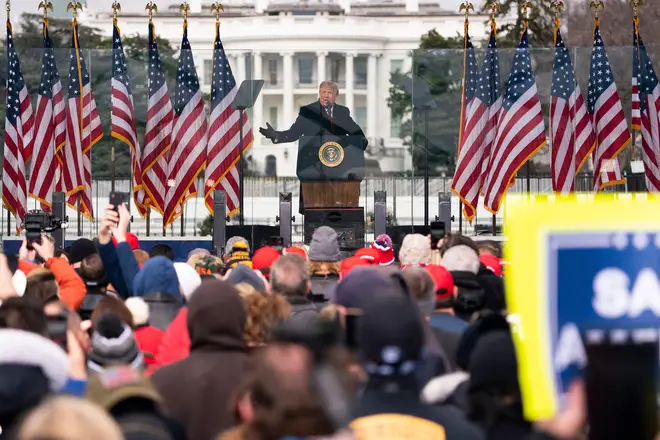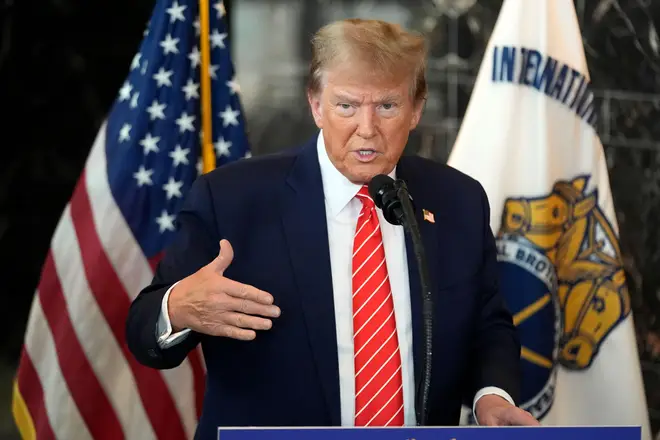
Daniel Barnett 9pm - 10pm
6 February 2024, 15:28 | Updated: 6 February 2024, 16:58

Donald Trump does not have presidential immunity and can be prosecuted on charges of plotting to overturn the 2020 election, a US court has ruled.
Mr Trump had claimed in the landmark legal case that he was immune from criminal charges for acts he said fell within his duties as president.
But Tuesday's ruling in Washington DC struck down that claim.

Read More: Donald Trump storms to victory in New Hampshire primary: What happens next?
The three-judge panel ruled unanimously that "Any executive immunity that may have protected him while he served as president no longer protects him against this prosecution."
It is the second time in as many months that judges have rejected Trump's argument that he is immune from prosecution for actions he took during his time in office and during the run up to the Capitol riots.
It is a setback for Mr Trump who has for years cited presidential immunity while battling multiple cases.
The former president is expected to appeal against the ruling, meaning the case could ultimately go to the Supreme Court where conservatives hold a 6-3 majority.
US Special Counsel Jack Smith has charged Mr Trump, 77, with conspiring to overturn Joe Biden's victory in the 2020 election and committing fraud to stay in office.
The trial in that case was initially scheduled for 4 March, but was postponed pending a ruling on the immunity claim.
It could be delayed for weeks, if not months, if the case ends up before the Supreme Court.
The date is politically significant, as the Republicans would prefer to delay it until after the US election in November.
If his nomination is confirmed and he defeats Democrat president Joe Biden, he could presumably try to use his position as head of the executive branch to order a new attorney general to dismiss the federal cases or he potentially could seek a pardon for himself.